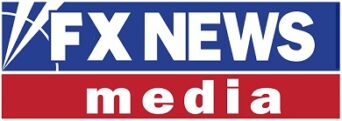Choosing the right futures trading broker is crucial for your success when trading futures contracts in Dubai. With many brokers to choose from, it can get overwhelming trying to determine which one best fits your trading needs and style. This article provides eight key considerations when selecting Dubai best futures trading broker so that you find one that enables you to trade effectively.
1. Regulation and Trustworthiness
When selecting a futures trading broker in Dubai, it is essential that they are properly regulated by the Emirates Securities and Commodities Authority (SCA). The SCA is the regulatory body that provides oversight and enforces strict compliance rules upon financial services companies operating in Dubai, including brokers. Any futures broker you choose should be registered with the SCA which indicates they have met certain standards to legally conduct trading activities in a fair market environment.
Look for an SCA seal of approval on the broker’s website and documentation. This seal serves as an indicator that the SCA has reviewed the broker’s business practices and deems them compliant with local regulation. Regulation provides accountability and consequences through SCA enforcement should violations occur – unregulated brokers lack this oversight safeguard.
Beyond just seeking an SCA-regulated status, you should also verify the reputation and track record of any prospective futures broker. This background check essentially verifies whether the broker has been operating ethically, reliably and trustworthily over the years. Recently established brokers pose more uncertainty without a long term record you can reference.
2. Range of Futures Products Offered
When selecting a futures broker, it is important to assess the range of futures contracts and products that they provide access to – this allows you to match the broker to your personal trading needs and strategies. Not all brokers will offer the same futures products across different underlying asset classes.
Having access to a variety of markets all in a single brokerage account provides ample flexibility as you seek new trading opportunities or shift strategies over time. You avoid limitations had you signed up with a more niche broker targeting certain futures only. Analyze specifically what futures indexes, commodities, currencies and other products the broker allows access to – ensuring it covers your needs sufficiently.
Additionally, some brokers may be better optimized for highly active futures traders who make large volumes of trades daily across different contracts. Others may better serve the casual trader placing occasional bets. Assess your personal trading style and match it to the typical clientele the broker caters towards for the best experience. Getting these requirements right from the start prevents needing to switch brokers later upon realizing mismatch issues after the fact.
3. Trading Platforms and Tools
The trading platforms and accompanying tools provided by a futures broker should be a major consideration when making your selection. You want platforms that are effective, intuitive, and provide the functionality you need to execute futures trading strategies.
Start by demo testing their platforms to evaluate ease of use. Assess the design – is it clean and well-organized without being cluttered? Can you easily execute orders, set risk parameters, access charts/analysis, customize workspace layouts, and complete other tasks critical to your trading process? Top platforms balance comprehensive features with simplicity through smart interface design.
Look for advanced capabilities like integrated trading algorithms, risk management tools such as stop losses, one-click order execution, custom indicators, futures rollover features, and more. Having pertinent trading tools at your disposal ultimately translates to convenience and the flexibility to trade futures more efficiently.
4. Commission Fees and Financing Rates
The fees charged by a futures broker, including commissions and financing rates, should be an important pricing consideration as you compare selections. Brokers implement varying fee structures when it comes to the costs for futures trades and account services.
You’ll want to analyze commission rates which are typically calculated on a per contract basis, meaning a fixed dollar amount each time you buy or sell a specific futures contract. Some brokers charge flat universal rates across all contracts while others implement complex tiered pricing models. Look also for any associated fees relating to market data access, account activity, withdrawals, or special services – these can add up.
For margin trading, compare financing rates for any leverage borrowed. These rates reflect the ongoing interest applied to margin balances. Competitive financing rates help reduce costs when leveraging positions. Some brokers also charge monthly account subscriptions that bundle together different services for simplicity.
5. Customer Support Services
Strong customer support should be a priority when selecting a futures broker because you want assistance to be readily available should any issues emerge with your account. Start by checking online reviews and community feedback for any weaknesses cited regarding the broker’s support capacity. However, also test things directly for yourself as well.
Reach out to their customer support through phone, email, live online chat or any other channel provided. Gauge their response time and the knowledge levels of personnel assisting you. Do they respond promptly – within minutes on critical issues and within 24 hours for general inquiries? Are staff courteous and also sufficiently skilled to provide accurate guidance related to your futures trading questions? The top-tier brokers enable quick access to support staff that demonstrate expertise about futures and their proprietary platforms.
Efficient assistance distinguishes brokers putting the client experience first versus those applying hands-off, self-service approaches with extended wait times or outsourced support unfamiliar with their offerings. Support availability close to or within your time zone is also best allowing reliable access during your peak trading hours.
Conclusion
Finding a best futures broker in uae providing the right mix of regulation, value, features, and service levels takes research. Pay attention to these eight evaluation criteria when hunting for your broker partner so that your experience with them facilitates, rather than hinders, your futures trading success in the exciting Dubai financial markets. Analyze different brokers across these factors, compare choices wisely and then make the ideal selection fitting your needs.










Leave a Reply
You must be logged in to post a comment.